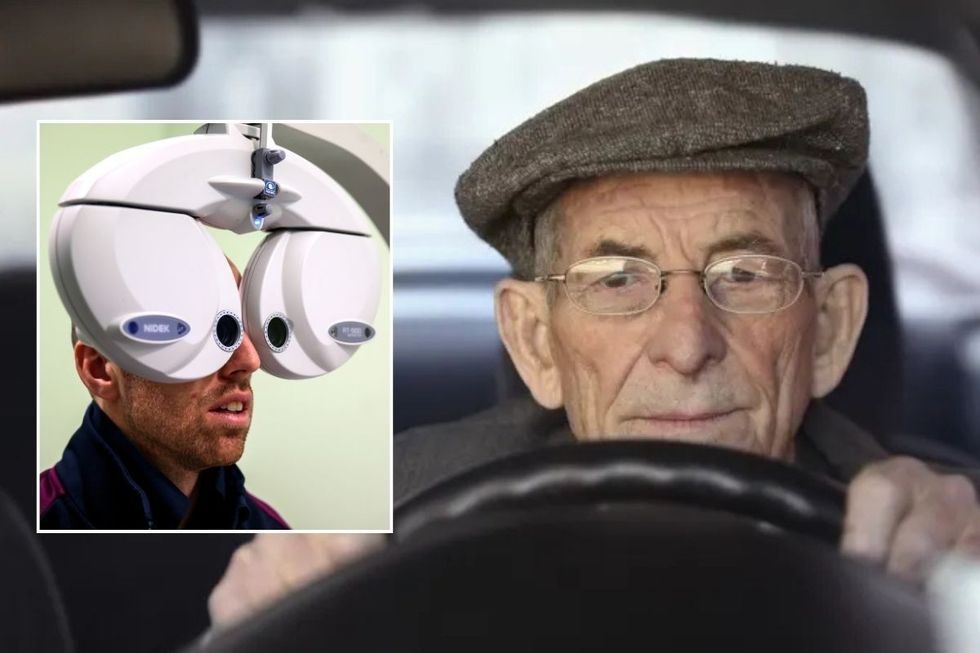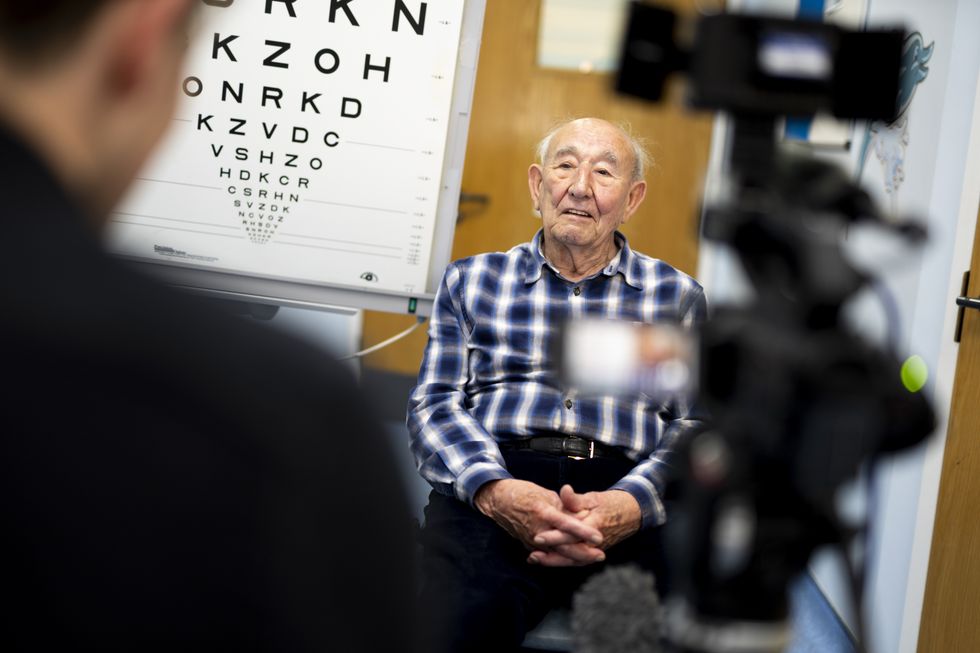WATCH: The panel discusses how bright headlights can affect the vision of elderly drivers
GB NEWS
Experts are concerned about the rising number of people with poor eyesight being convicted of dangerous driving
Don't Miss
Most Read
Trending on GB News
Experts are calling for action to crack down on drivers with poor eyesight amid fears road safety could be compromised by people who should no longer be behind the wheel.
Research from the Association of Optometrists (AOP) found that many medical professionals are concerned about the rising number of people with poor eyesight.
It has called on people to speak with their friends and relatives to have frank conversations about potentially giving up driving if their eyesight is not at the required levels. It has also advocated for drivers to have eye tests every time they renew their licence or apply for their first licence.
In recent years, there have been high-profile cases of motorists who have been told to stop driving either by an optometrist or the DVLA.
Do you have a story you'd like to share? Get in touch by emailingmotoring@gbnews.uk

Experts are calling for law changes to amend eyesight requirements for driving
PA/GETTY
In one case, Neil Pemberton, from Lancashire, was told his vision was "extremely poor" and told not to drive in 2013.
Despite the advice, he continued to drive. In 2016, he took an eye test where he was told he had no vision in his right eye and very poor vision in his left eye.
He lied to the DVLA, telling the agency there was nothing wrong with his eyesight when renewing his licence. Almost 10 years after being told to stop driving, he fatally struck 80-year-old Peter Westweel in Langho.
Pemberton, who was 81 at the time of his conviction, was sentenced to two years and eight months in prison, despite complaints that the term was too lenient.
The motorist was driving 18mph over the 30mph speed limit at the time of the collision, with Judge Simon Medland KC describing Pemberton as "selfish".
Professor Julie-Anne Little, past chairman of the AOP and research optometrist said: "Sight changes are gradual which means that many drivers are unaware that their vision has deteriorated over time.
"But having poor eyesight has been shown to slow reaction times and the ability to drive safely - and it doesn't take much for one mistake to result in a serious collision with catastrophic consequences."
All people are recommended to have their eyes tested every two years, or more frequently if they are advised to do so by their optometrist.
While there is no legal obligation for optometrists to notify the DVLA about a patient who is medically unfit to drive, they do have a duty to report this if it is in the public interest to do so.
The General Optical Council’s guidance confirms that it is appropriate to notify the DVLA directly even if the patient does not consent when the patient is unwilling or unable to notify the DVLA themselves.
The AOP data found that 32 per cent of optometrists say the number of patients they are advising not to drive due to poor vision has increased in the last three years.
Professor Little added: "As an optometrist, I’ve sometimes had to sit down with a patient to explain that their vision is simply no longer good enough to drive.
LATEST DEVELOPMENTS:

People are being encouraged to speak with their friends and relatives if they have concerns about their eyesight
PA
"It is a difficult conversation, but one that is absolutely necessary – preventing them from putting themselves and others at risk.
"Which is why we’re urging friends and family to take the time to consider what they want to say, approach it with respect but to tackle the conversation if they have concerns over a relative or someone they know who is driving with poor vision."
A Department for Transport spokesperson told GB News: "Every death on our roads is a tragedy, and our thoughts remain with the families of everyone who has lost a loved one in this way.
"The NHS recommends adults should have their eyes tested every two years, and while we do not have plans to change eyesight requirements for driving, we continue to explore ways to improve road safety."








